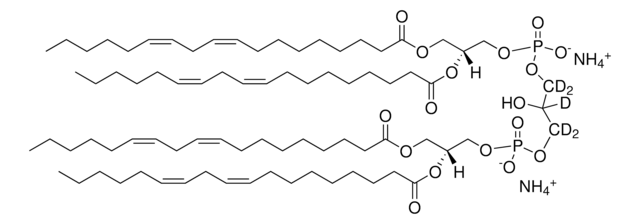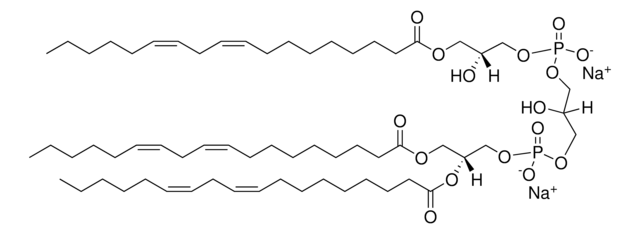C0563
Cardiolipin sodium salt from bovine heart
≥97% (TLC), lyophilized powder
Synonym(s):
Diphosphatidylglycerol
Sign Into View Organizational & Contract Pricing
All Photos(1)
About This Item
Recommended Products
biological source
bovine heart
Quality Level
Assay
≥97% (TLC)
form
lyophilized powder
lipid type
phosphoglycerides
shipped in
ambient
storage temp.
−20°C
General description
Cardiolipin is localized in the inner membrane of mitochondria. It contains 18 carbon atoms, 3-phosphatidyl groups connected via a glycerol bridge. Cardiolipin is an important component of ATP synthase enzyme.
Application
Cardiolipin sodium salt from bovine heart has been used:
- as a phospholipid standard in thin layer chromatography for the quantification of total mitochondrial lipids of Neurospora crassa(89)
- as an internal standard in reverse phase high performance liquid chromatography (RP-HPLC) for quantification of bacterial lipid extracts(90)
- as an antigen to evaluate IgM reaction in systemic lupus erythematosus (SLE) patients(91)
Biochem/physiol Actions
Cardiolipin is a mitochondrial phospholipid that is found in mammalian tissues in low concentrations. It is often a membrane component. Inhibits cell attachment of fibronectin, vitronectin and Type I collagen.
Packaging
packaged under argon
Storage Class Code
11 - Combustible Solids
WGK
WGK 3
Flash Point(F)
Not applicable
Flash Point(C)
Not applicable
Personal Protective Equipment
dust mask type N95 (US), Eyeshields, Gloves
Choose from one of the most recent versions:
Certificates of Analysis (COA)
Lot/Batch Number
Don't see the Right Version?
If you require a particular version, you can look up a specific certificate by the Lot or Batch number.
Already Own This Product?
Find documentation for the products that you have recently purchased in the Document Library.
Customers Also Viewed
Ze-Wei Ma et al.
Acta pharmacologica Sinica, 39(6), 1012-1021 (2017-12-22)
Humanin (HN) is a 24-residue peptide identified from the brain of a patient with Alzheimer's disease (AD). HN has been found to protect against neuronal insult caused by Aβ peptides or transfection of familial AD mutant genes. In order to
Analysis of mutations in Neurospora crassa ERMES components reveals specific functions related to beta-barrel protein assembly and maintenance of mitochondrial morphology
Wideman JG, et al.
PLoS ONE, 8(8), e71837-e71837 (2013)
Sonia Rebollo-Ramirez et al.
Chemical research in toxicology, 31(8), 688-696 (2018-06-28)
Antimicrobial resistance is a major threat the world is currently facing. Development of new antibiotics and the assessment of their toxicity represent important challenges. Current methods for addressing antibiotic toxicity rely on measuring mitochondrial damage using ATP and/or membrane potential
Effects of pure n-alkanes and crude oil on bacterial phospholipid classes and molecular species determined by electrospray ionization mass spectrometry
Mazzella N, et al.
Journal of Chromatography. B, Analytical Technologies in the Biomedical and Life Sciences, 822(1-2), 40-53 (2005)
Lu Luo et al.
The Journal of biological chemistry, 289(46), 31708-31718 (2014-10-08)
Bax is a pro-apoptotic Bcl-2 family protein. The activated Bax translocates to mitochondria, where it forms pore and permeabilizes the mitochondrial outer membrane. This process requires the BH3-only activator protein (i.e. tBid) and can be inhibited by anti-apoptotic Bcl-2 family
Our team of scientists has experience in all areas of research including Life Science, Material Science, Chemical Synthesis, Chromatography, Analytical and many others.
Contact Technical Service
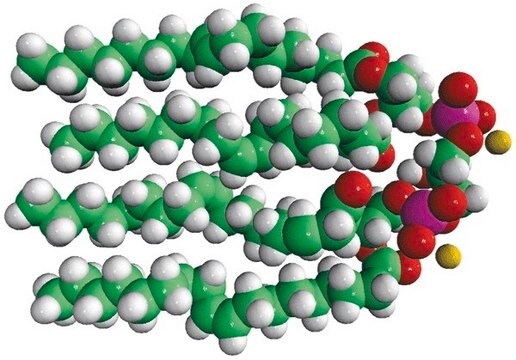
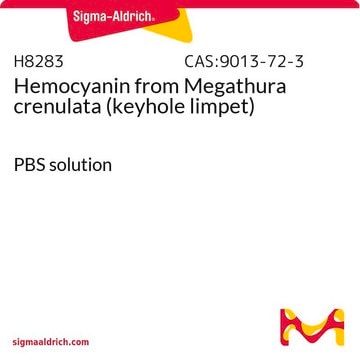
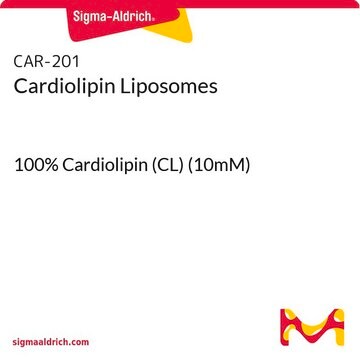
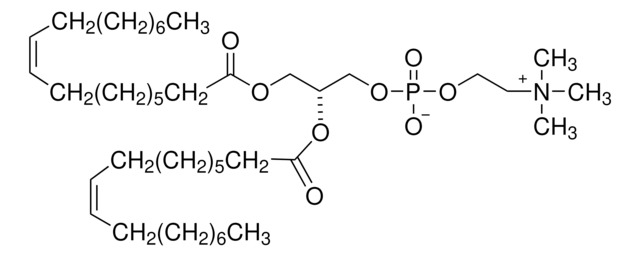

![14:0 Cardiolipin (sodium salt) 1′,3′-bis[1,2-dimyristoyl-sn-glycero-3-phospho]-glycerol (sodium salt), powder](/deepweb/assets/sigmaaldrich/product/images/390/523/992bed4e-3608-4209-aa6e-fa9206a4a31b/640/992bed4e-3608-4209-aa6e-fa9206a4a31b.jpg)

